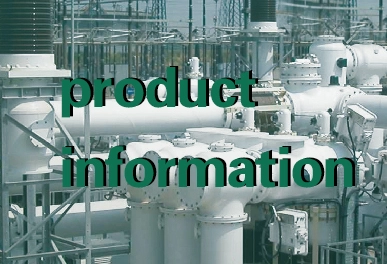The gas pressure in the closed container changes with the temperature. In order to facilitate statistics and comparison, the relative pressure value of SF6 at 20℃ is usually taken as the standard value. During field detection, the SF6 pressure value measured at a certain ambient temperature should be converted to its corresponding equivalent pressure value at 20℃, so as to judge the performance of the density relay.
1. Characteristics of SF6 relay calibrator
(1) The alarm action and pressure value of various SF6 relays at any ambient temperature are measured and automatically converted into the corresponding standard pressure value at 20℃ to realize the calibration of alarm performance of SF6 gas density relays.
(2) The locking action and pressure value of various SF6 gas density relays at any ambient temperature are measured and automatically converted into the corresponding standard pressure value at 20℃ to realize the calibration of locking performance of SF6 gas density relays.
(3) If the calibrated SF6 gas density relay is attached with a pressure gauge or density meter, the calibrator can also calibrate the accuracy of the pressure gauge or density meter.
(4) SF6 gas pressure at any ambient temperature can be converted to the standard pressure conversion at 20℃.
(5) The standard pressure at 20℃ is converted to the pressure at any temperature.
(6) Compact structure, small size, light weight, easy to carry.
(7) High degree of mechatronics, advanced technology and reliable performance.
(8) Large screen LCD, Chinese interface, intuitive and simple.
(9) The power supply with UPS function, suitable for field operations.
(10) Equipped with a micro printer, at any time to print test results.
(11) SF6 relay has good sealing performance and does not waste SF6 gas in the calibration process.
(12) The two ends of the connecting pipe are equipped with an inlet quick check valve, which is easy to operate and prevents water and air from entering the pipeline. Most density relays can be calibrated directly without disassembly.
(13) The sampling point is equipped with an intelligent voltage protector, and the wrong voltage connection at the sampling point will not damage the calibrator, so it is safer to use.
(14) The temperature sensor is located in the gas pipeline of equipment, correctly reflect the gas temperature in the SF6 relay with more accurate measurement.
2. Precautions for SF6 relay calibrator
(1) Before going to the site, take the toolbox, check the SF6 gas storage capacity of the small gas cylinder in the toolbox, and take all the transition joints and tools for switches.
(2) The corresponding alarm signal line and locking signal line on the terminal block should be disconnected from the terminal block to prevent the second loop and the signal line from forming a loop, which will affect the test.
(3) The detected SF6 relay cannot be placed flat, but should be placed upright, otherwise it will cause inaccurate detection.
(4) Density relay should not have too much vibration in the process of detection.
(5) When using gas cylinders, please follow the following instructions.
Related Article for Reference
On-line Monitoring of SF6 Density Relay by GIS
1. The necessity of installing monitoring device of the density of gas on GISAs a main switchgear that has been greatly developed in recent decades, GIS has been widely used in power systems due to it...
Mon 07 2022
Type of Pressure Measurement
1. Absolute pressureThe pressure with absolute vacuum as the zero reference.2. Positive pressureA pressure more than atmospheric pressure based on atmospheric pressure.3. Negative pressureThe pressure...
Tue 12 2020







